- Category
- Life in Ukraine
The Nation That Was Starved by USSR Now Feeds the World
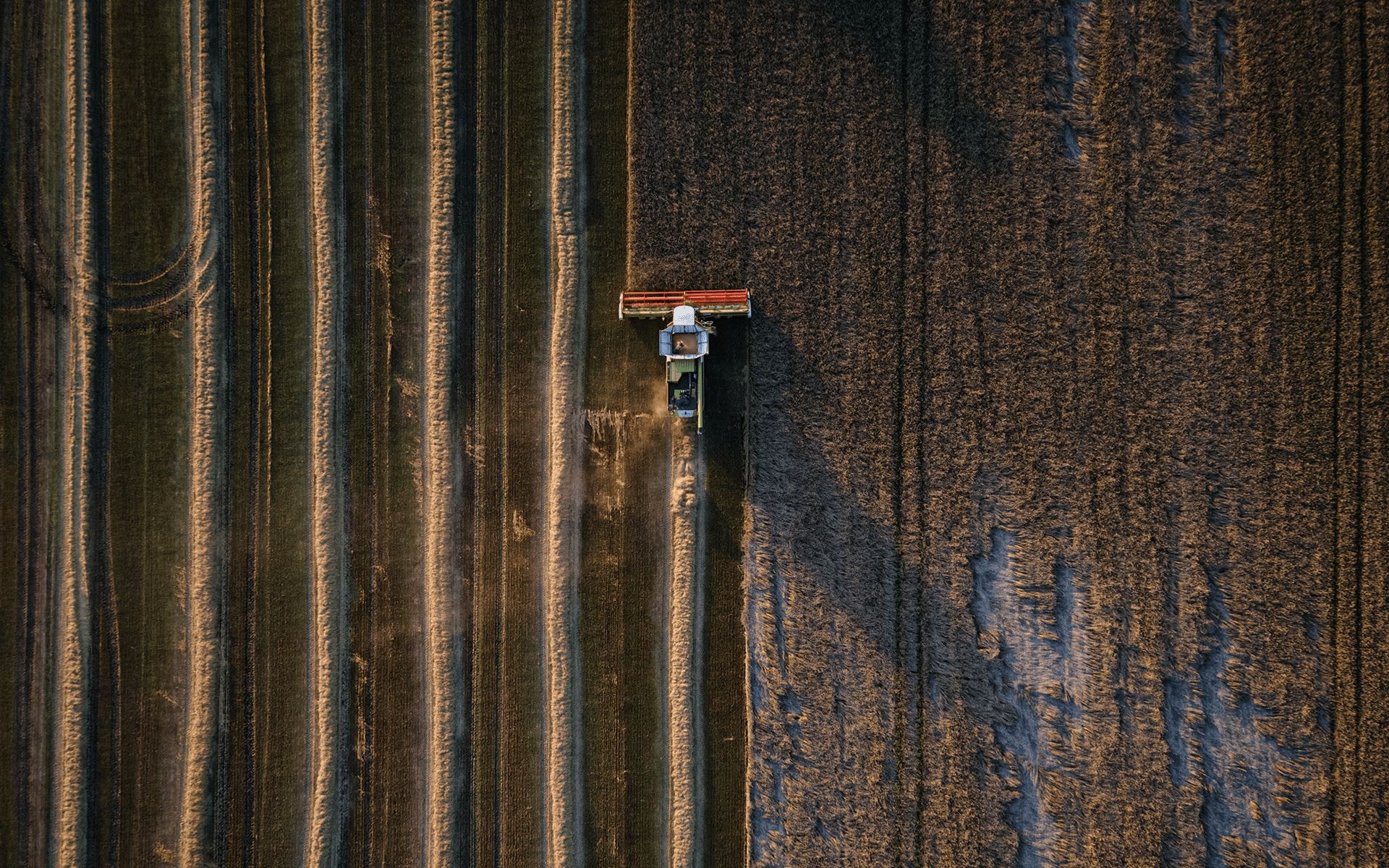
Once starved by Moscow-made artificial hunger, the Holodomor genocide, and now under attack by Russia’s aggression, Ukraine has defied the odds to provide global food security. The nation honors its tragic past on Holodomor Remembrance Day and continues to feed the world, knowing all too well the trauma of starvation.
In the 1930s, Ukraine’s fields were a stage for one of history’s most horrific crimes. Russian authorities, now with a Soviet label, confiscated all the harvest, seeds, livestock, and any food, leaving Ukraine’s rural populations with nothing to eat. Today, those same fields are being devastated once again as Russia’s war aims to cripple Ukraine’s role as a global breadbasket. Yet, Ukraine remains a lifeline for millions worldwide.
How Ukraine feeds millions today
"Even during active fighting, we planted crops here, with missiles flying overhead," said Oleh Hirman, a farmer in the Kharkiv region, who lost a leg to a Russian mine while helping deminers clear land. Farmers like Hirman risk their lives daily, to harvest crops and do their job well.
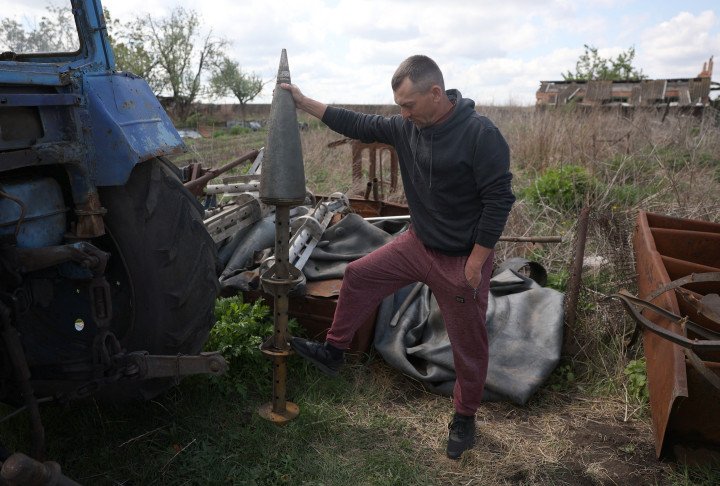
Ukraine’s agriculture is key to fighting world hunger, said Friends of Europe think tank’s report Ukraine: Cost of Inaction. The country is the world’s top producer and exporter of sunflower meal and oil and, in 2021, was the second-largest grain exporter globally, following the United States.
Before the war, Ukraine was feeding 400 million people, supplying half of the World Food Programme’s wheat, and sending 92% of its wheat exports to countries in Africa, Asia, and the Middle East. Nations like Egypt, Indonesia, and Bangladesh were leading recipients, while vulnerable countries like Somalia, Lebanon, Eritrea, and Mauritania sourced over 40% of their wheat from Ukraine. With untapped potential, Ukraine has the capacity “to feed 600 million people,” said the US Special Representative for Ukraine’s Economic Recovery.
Ukraine used to have even bigger goals. “Twenty years ago, Ukraine fed just 40 million people worldwide,” said Roman Leshchenko, Ukraine’s First Deputy Minister of Agrarian Policy, in early February 2022. “By 2030, we aim to feed 1 billion people.”
But weeks later, Russia’s full-scale invasion began, cutting off Ukraine’s access to export markets for four months. This disruption caused a 35% surge in the global food price index, worsening malnutrition for hundreds of millions.

The nation, however, did not break.
“I stayed here with my cows,” said Mykhailo Travetskyi, a former Harley-Davidson biker turned farmer in the Chernihiv region, recalling the invasion’s early days. For farmers like Travetskyi, agriculture is personal.
The trauma of the Holodomor remains etched in the memory of Ukrainians. Travetskyi recounts how his grandmother’s cow saved her family’s life during the famine, producing milk even as the family scavenged grain from rodent burrows to survive. “The cow kept them alive,” he said. “That’s how my grandmother survived, my father was born, and so was I.”
This collective memory drives Ukraine’s mission to combat hunger worldwide. Even amid Russian aggression, the nation has exported millions of tons of grain to countries in need, particularly in Africa and the Middle East, where food insecurity has worsened due to global crises.
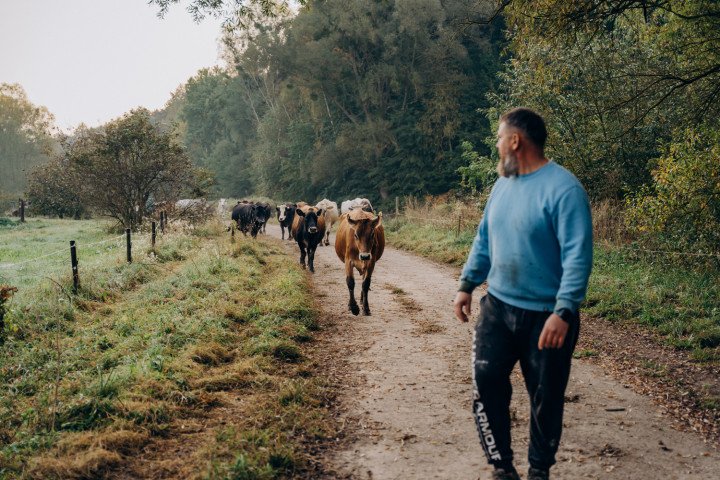
Before the invasion, Ukraine accounted for 10% of global wheat exports and 12% of corn and barley exports. Today, agriculture remains central to Ukraine’s economy, providing 14% of jobs and 40% of export income. Ukraine continues to feed millions.
Russia’s weaponization of hunger
Russia’s aggression continues to devastate Ukraine’s farmland, with 156,000 square kilometers—25% of the country’s territory—potentially contaminated with mines as of February 2024, reported Ukraine’s State Emergency Service. Only over the past three months, Russian forces have launched around sixty attacks on Ukraine’s grain infrastructure.
Farmers struggle from disrupted logistics to electricity shortages that have hindered fertilizer production, previously meeting 90% of domestic demand. “When there’s an alarm, everything stops,” said agribusiness director Vitaliy Onyshchuk. “In those two or three hours, we could have sown 40 hectares.”
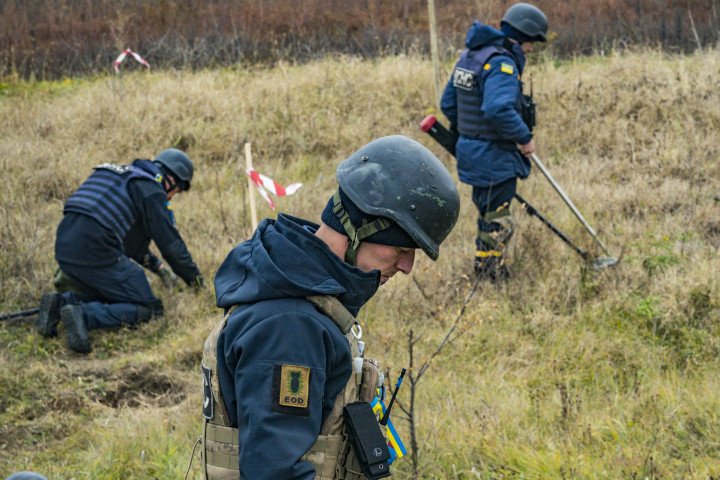
Russia has, once again, turned food into a tool of war. Russia has stolen over 180,000 tons of Ukrainian grain from the occupied territories and exported it through Mariupol in 2024, Ukrainian Prime Minister Denys Shmyhal revealed. Russia’s modern tactics eerily mirror the Soviet-era devastation of collectivization and famine, with forces in occupied Kherson forcibly seizing grain and vegetables while planning to mandate crop sales at below-market prices through state operators in 2025. Farms and equipment have been systematically stolen, damaged, or destroyed.
These actions, coupled with aerial attacks on Ukraine’s grain storage and export facilities, destroying tonnes of harvested crops, have disrupted global markets. This hard-harvested grain will now never reach the people it was intended for.
Efforts to mitigate the crisis included the July 2022 Black Sea Grain Agreement signed by Ukraine, Russia, and Turkey, which secured grain exports through Black Sea ports—critical for 98% of Ukraine’s shipments. While hailed as “a beacon of hope” by UN Secretary-General Antonio Guterres, Russia undermined it a day later with Kalibr missile strikes on Odesa port.
Two years ago today, Ukraine signed a grain agreement with Russia. The deal was supposed to ensure the safety of commercial shipping in the Black Sea. But Russia broke it. pic.twitter.com/zFz5zUCTts
— UNITED24 Media (@United24media) July 22, 2024
Food security is another casualty of Russia’s unnecessary and unprovoked war.
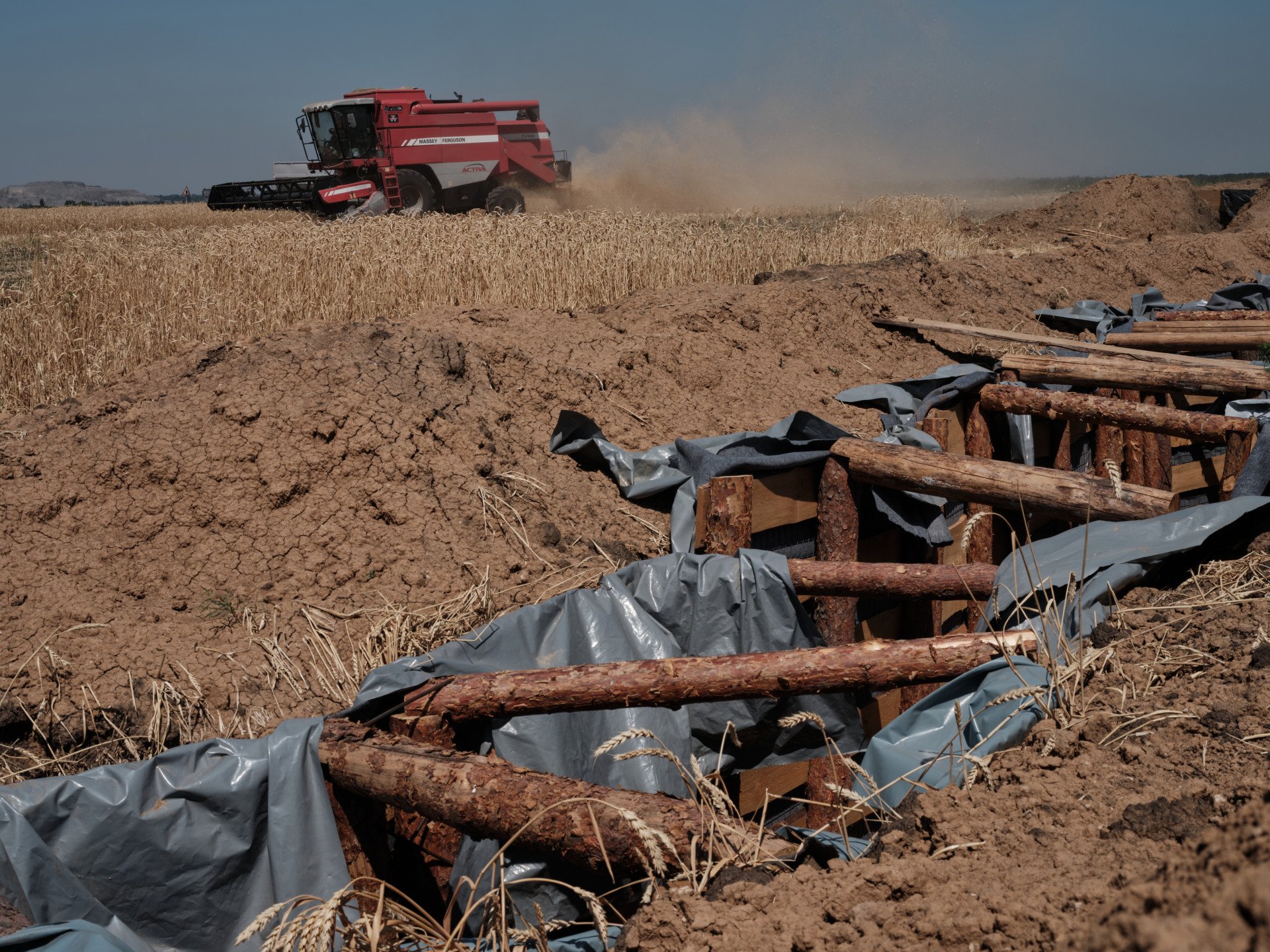
Ukraine’s role in global food security
Despite Russia’s exit from the Black Sea Grain Initiative, Ukraine has found alternative routes to export its grain—the “Ukrainian Corridor.” Ukraine’s Western partners, like the US and Sweden, have praised these efforts as critical to global food security. “Ukraine helps those who today suffers from Russia-caused famine,” said former Swedish Foreign Minister Tobias Billström in 2023.
Over 2,500 vessels have transported goods to more than 40 countries via this corridor, carrying more than 70 million tons of cargo, including 46,000 tons of grain using the Ukrainian Corridor.
Ukraine’s 10-point Peace Formula addresses global challenges, including food security. As a major grain exporter, Ukraine calls for de-weaponizing food supply chains, restoring control over its ports, and ensuring safe navigation in the Black and Azov Seas. Initiatives like “Grain from Ukraine,” and “EU Solidarity Lanes” are going to be “further successfully, continuously and safely implemented, and extended to other Ukrainian ports without time limitations.”
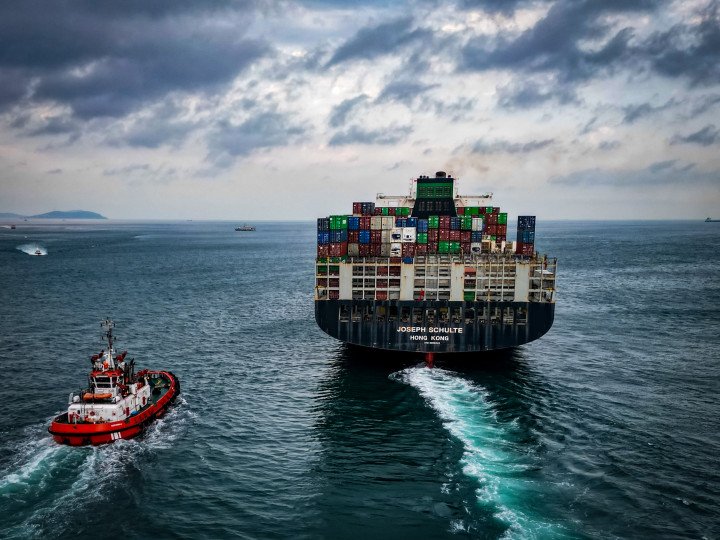
The “Grain from Ukraine” (GrainFromUA) program, launched by President Zelenskyy, focuses on combating global famine. Under this initiative, participating countries purchase Ukrainian agricultural products and donate them to nations on the brink of starvation. Ukraine has invited international partners to fund the transport of Ukrainian grain, which is delivered free of charge to the most vulnerable regions. Despite the strain of war, Ukraine also allocates funds from its own war-torn budget. Through this program, Ukraine has delivered essential food supplies to countries like Sudan, Ethiopia, Kenya, and Yemen, and recently, 1,000 tons of wheat flour to Gaza.
Despite countless setbacks, Ukraine is ramping up food exports. By November 1, 2024, in the 2024/2025 marketing year, it exported over 14 million tons of grains and legumes—a 55.7% surge from last year. Wheat exports soared to 7.7 million tons, up 67.1%, while corn hit 4.7 million tons, nearly 23% higher than the previous year.
The issue of ending hunger is of particular importance to the Ukrainian nation, which has experienced genocide by starvation. This genocide, called the Holodomor, was perpetrated by Stalin 90 years ago, and every year Ukrainians commemorate its anniversary and honor the memory of its 4.5 million victims.



-6ead6a9dd508115a5d69759e48e3cad1.jpg)
-29a1a43aba23f9bb779a1ac8b98d2121.jpeg)
-7f50738271c122a9b5e663cb80703dd6.jpg)


-554f0711f15a880af68b2550a739eee4.jpg)